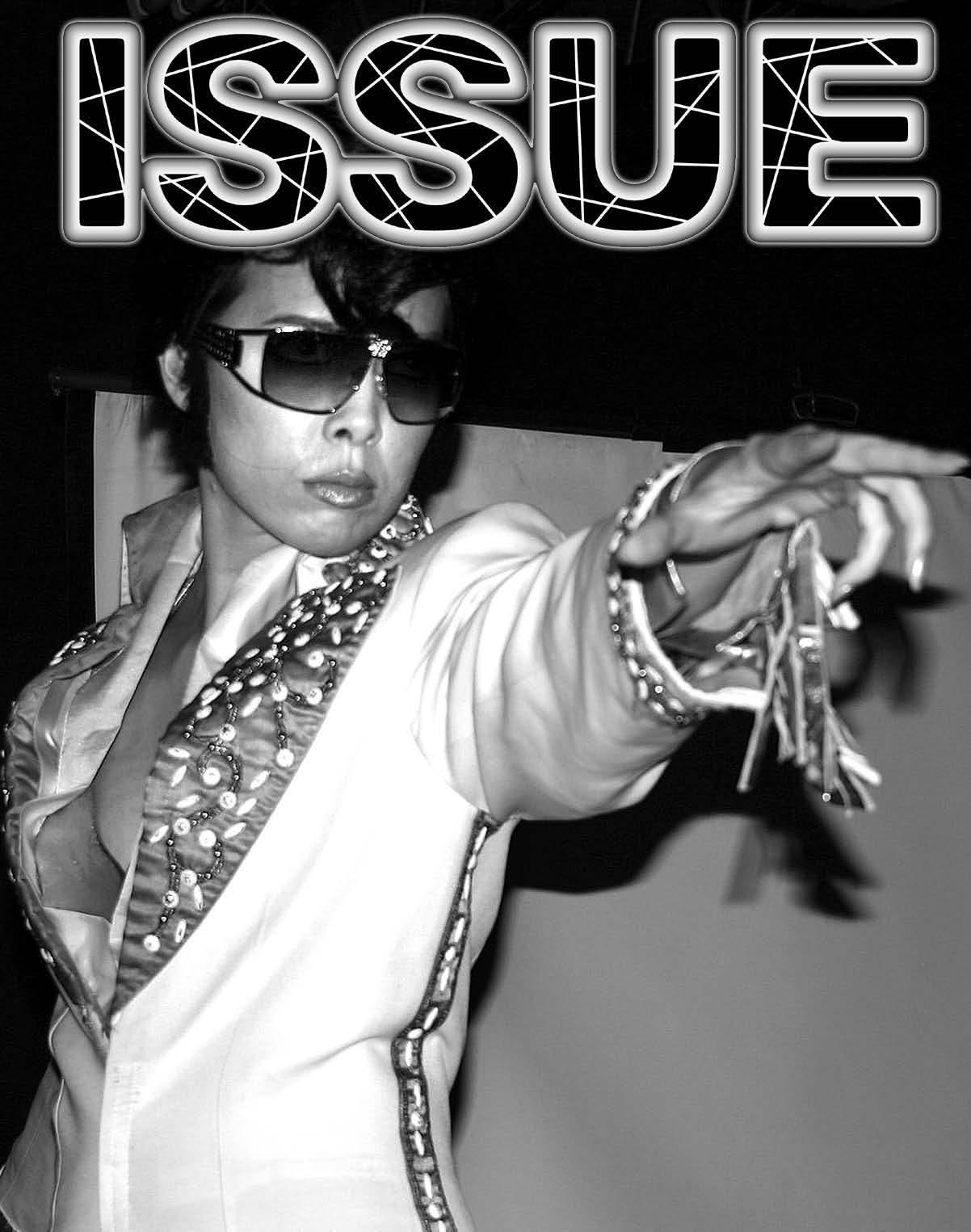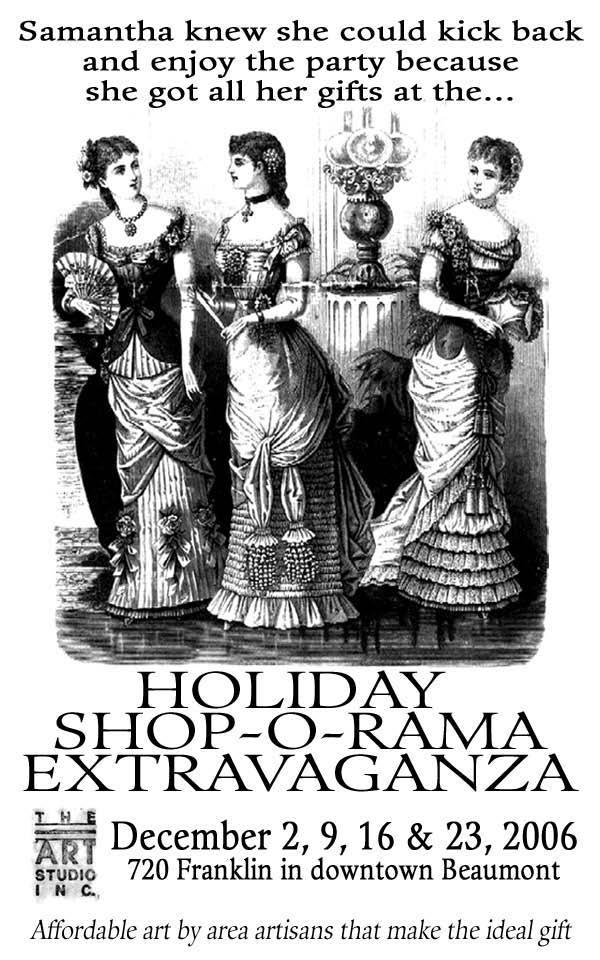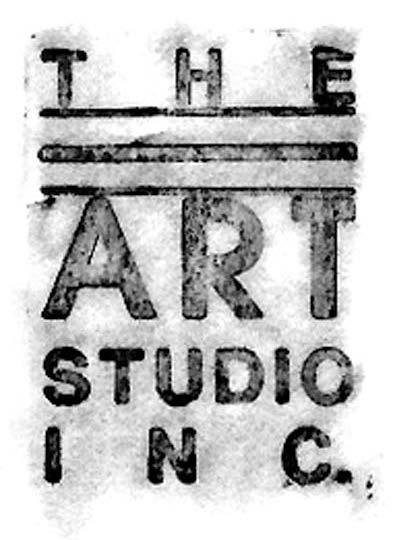
3 minute read
Thoughtcrime

Volume 11, No. 1 Volume 13, No. 4 September 2004 ISSUE • 5 December 2006 ISSUE • 13 THE ARTS MAGAZINE OF THE ART STUDIO, INC. APRIL 2005exans have their “Twang,”the distinctive vocal style that distinguishes them from people from other states.“Twang”also refers to the guitar sounds of Texas R&B and country. At the Art Museum of Southeast Texas,“Twang”is a group show of contemporary Texas sculpture featuring work by a dozen artists. Texas is both Western and Southern,cotton and cowboys,and a multitude of clashing cultures.If there is one thing that defines Texas,it is its indefinability. “Twang,”like the state that links these artists,incorporates a plethora of styles and forms. Among the strongest pieces on display is “LoveJoey,”a study of friendship,loneliness and loss by Michael Powers. The piece consists of an automatic tennis serve machine that fires a series of balls (each labeled “Joey”) against a wall on which is a large Argyle pattern that may or may not be a net.The machine is labeled “Playmate”and the balls are fired with monotonous regularity,with the gallery walls echoing a repetitive thud thud thud,like the Dada soundtracks of Kurt Schwitters. The “Joey”of the title refers to Joey Mussacchio,a childhood friend of the artist who is now dead. Does the lifeless “Playmate”long for someone with whom to play? It seems to connect with the quintessentially American past-time — a simple game of catch. Visitors to the opening witnessed the balls bouncing off two walls and back into the machine, completing a never-ending solitary game of catch. The piece had a melancholy quality that reflected both the loss of a childhood friend and of childhood itself. However,visitors at a later date may have seen the balls hit the wall and bounce randomly away as a museum guard chased after them.This viewing emphasized a sense of “play,”with the machine,like a rambunctious child,teasing its reluctant “playmate.” The same piece,but two games and,therefore, two different pieces. Even though the “Playmate”is inanimate, Powers has created a performance piece reminiscent of the 1960s Fluxus group,whose creations existed in the reactions of the viewer. Powers plays with our emotions and delicately balances the the joys of childhood with the loss of innocence. Another piece that demands viewer participation is Justin Kidd’s “In and Out Box.” Consisting of a crudely constructed mailbox hanging on the wall,visitors to the exhibit are invited to “mail”a postcard from the Czech Republic See TWANGon page 11 T Distinctly DiverseDIFFERENT APPROACHES U NITE ‘TEXAS TWO DOZEN’ Submission Guidelines and Disclaimer ISSUEsolicits and publishes the work of local authors. Poetry, short fiction, scholarly works and opinion pieces may be submitted for review. All works must be typed or submitted on a disk (using approved word processing software), or may be sent to TASI by e-mail. All works are subject for review by our editor, and may be rejected or edited on the basis of grammar, spelling or content. The opinions expressed in “Thoughtcrime” do not necessarily reflect the opinions of TASI, its Board of Directors, ISSUE’s editorial staff, or donors to TASI. Send typed works to: ISSUE 720 Franklin, Beaumont, TX 77701 or e-mail: artstudio@artstudio.org Authors must submit a daytime telephone number along with all submissions. Pen names are acceptable, but authors must supply real names for verification. All submitted works become property of TASI, and whether rejected or accepted, are not returned to the author. ISSUE does not notify of rejection by mail or telephone. Among the works featured in “TWANG: Contemporary Sculpture from
Advertisement
Texas,” on display through Sept. 26 at the Art Museum of Southeast Texas, are, clockwise from left, “E.B.”by Erick Swenson, “Museum Bench” by Chris Sauter, “Two Paintings on a Rock” by Bill Davenport and “Sell Me Something Brown” by Franco MAKING AN EXHIBITION OF THEMSELVES PAGE 7 Mondini-Ruiz. Review and photos by Andy INSIDE: LISA REINAUER: JUDGE AND JURY, HOT PIG, AND MORE
Coughlan






